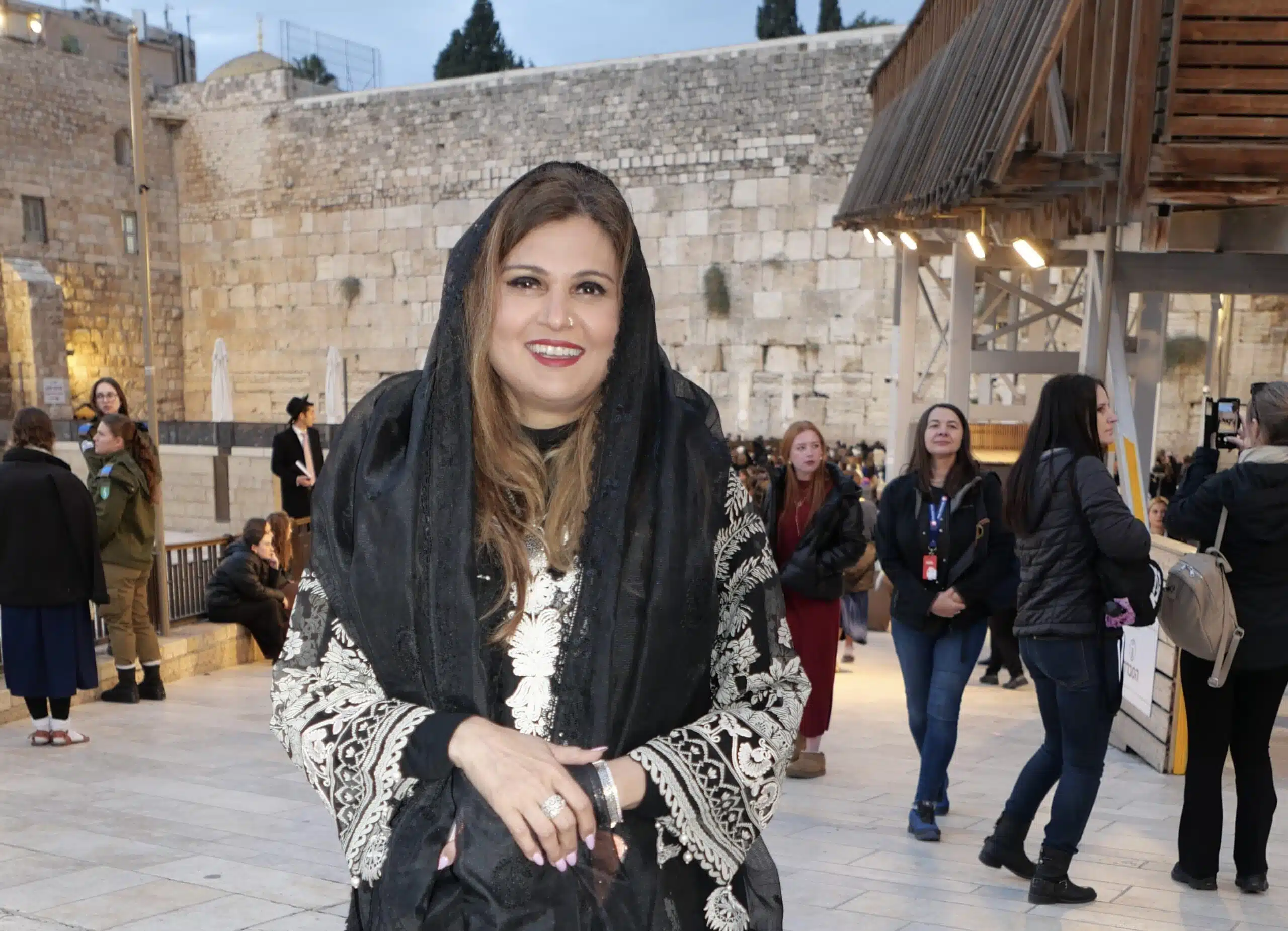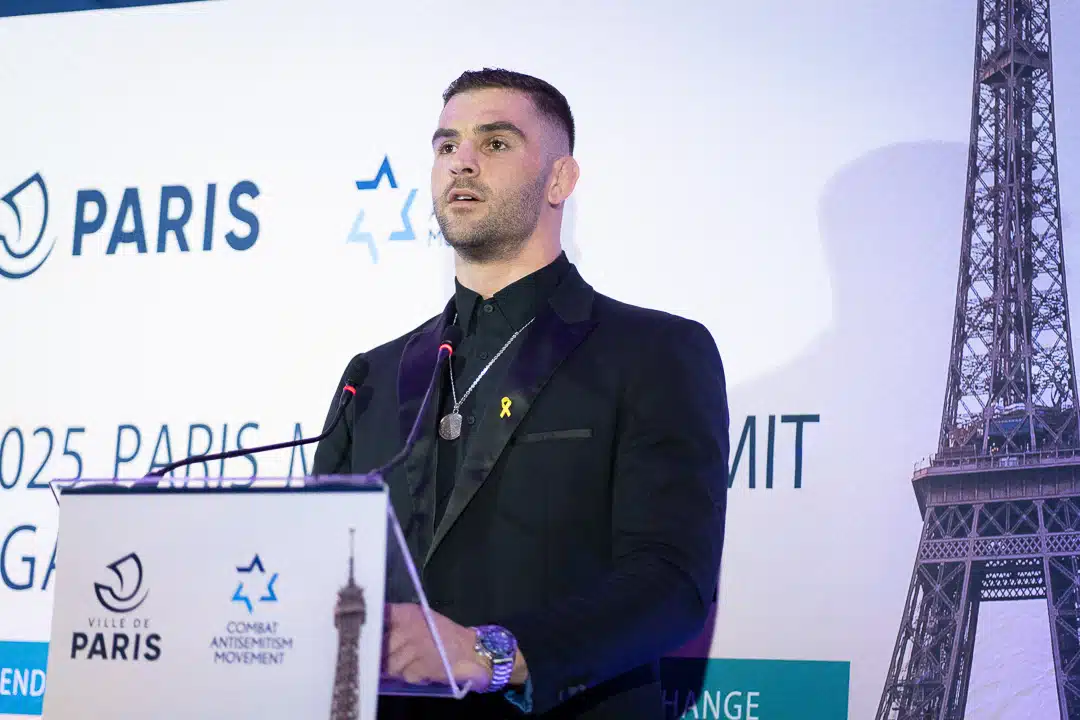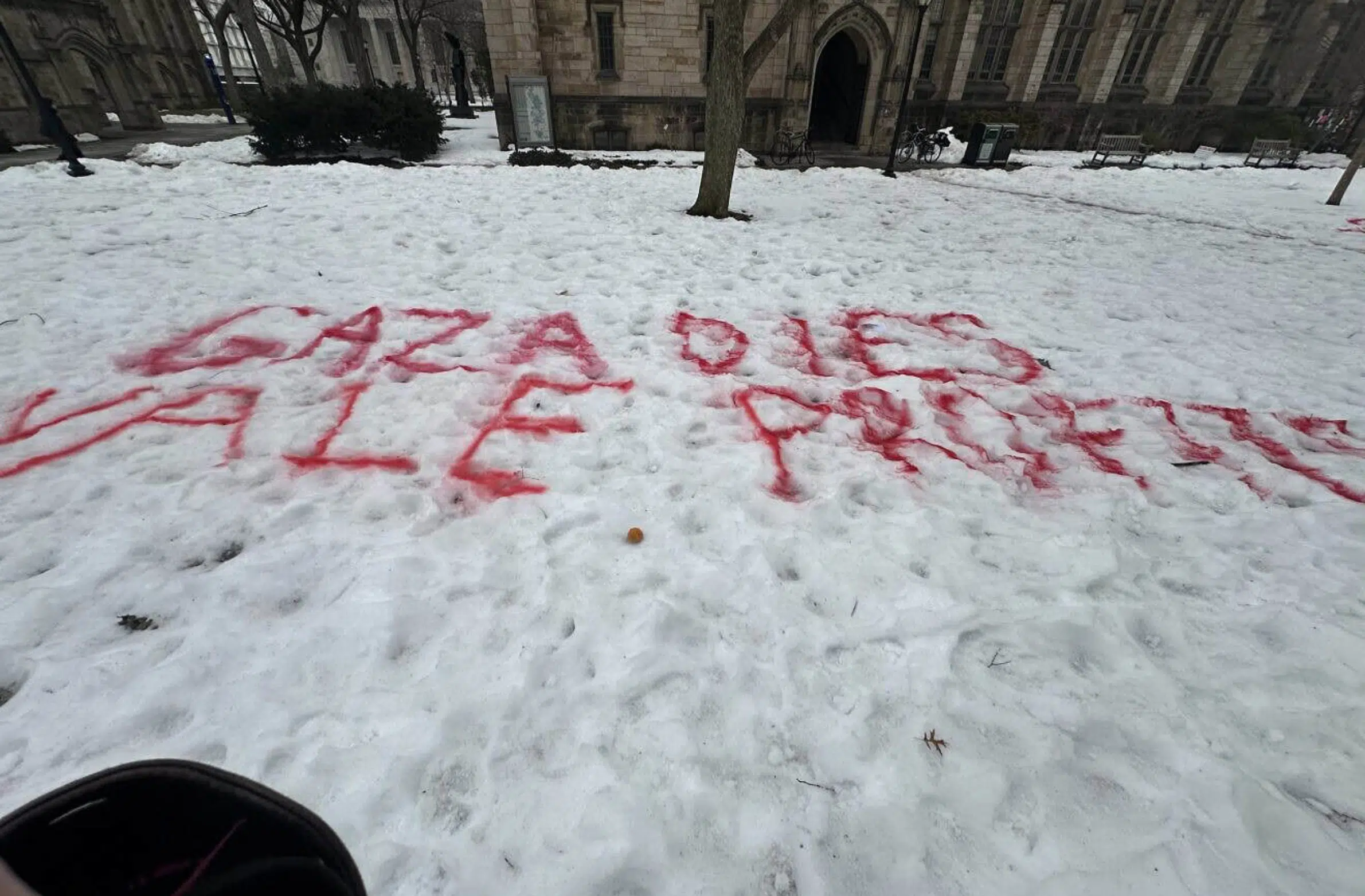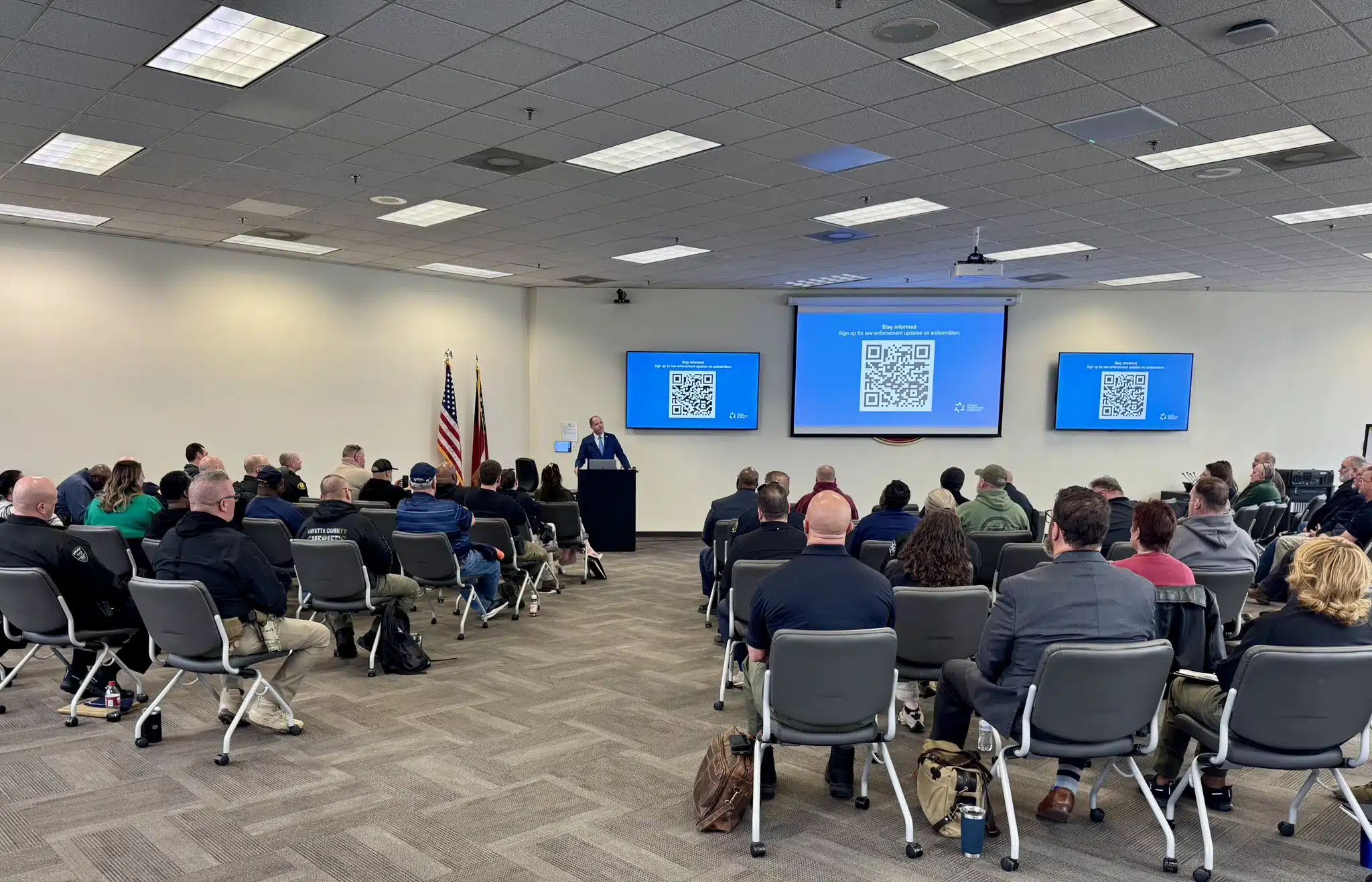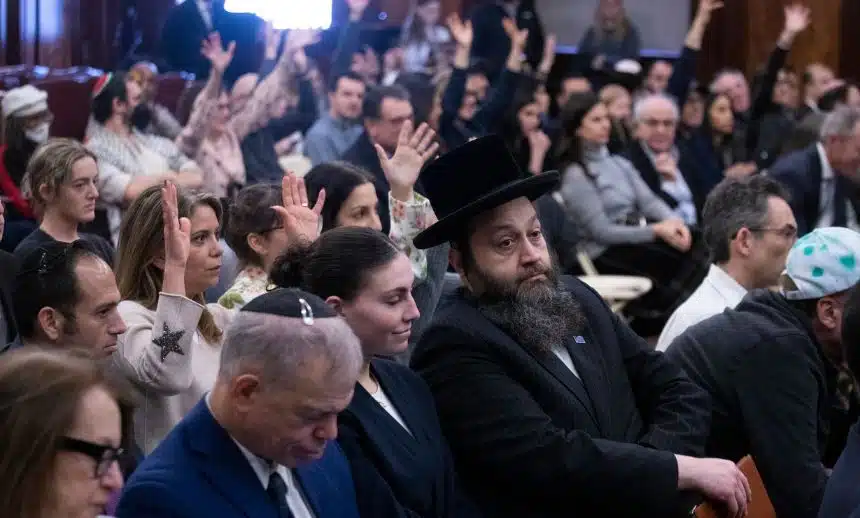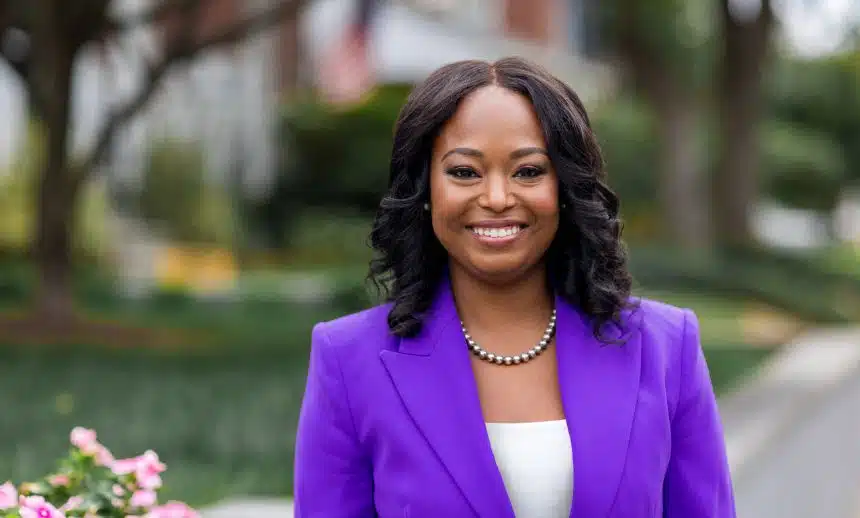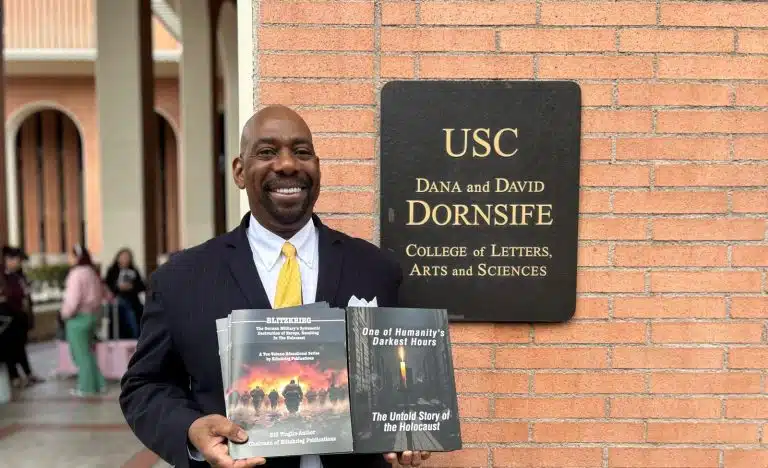

‘Before It’s Too Late’: In New Book, Entrepreneur Eric Rozenberg Explains How Antisemitism Drove Family’s Move From Belgium to US
Nearly ten years ago, Eric Rozenberg — a successful Belgian-born and raised entrepreneur — packed his bags and moved with his wife and three young daughters to the United States, starting anew in South Florida. Why? Because he feared for the future of his family, as Jews, amid rising antisemitism in their native country.
Now a U.S. citizen, Rozenberg has penned what he calls a “love letter to his daughters and America,” explaining the trans-Atlantic move, detailing both his family’s experiences and the proliferation of Jew-hatred across Europe in recent decades, and raising the alarm about similar threatening trends he sees developing in the United States.
Ahead of the Sept. 20th of Before It’s Too Late (Lioncrest Publishing), Rozenberg sat down for an interview with Combat Antisemitism Movement (CAM) Editor-in-Chief Barney Breen-Portnoy to discuss why this book was needed at this tumultuous moment in world history.
What motivated you to write the book?
Before anything else, it’s a legacy project. For years, I had a mind map in my office. The idea was to write to my daughters, so that they would understand why we decided to leave Belgium and how we chose to come to America.
I’ve talked to so many Americans who told me, “I wish when my ancestors came for the first time to America, they would have written why and how they did that.” Also, there are a lot of people in America, starting with Jewish people, who, to me, are living in a bubble. They don’t understand what’s at stake, they don’t understand why it’s important to support Israel and be a Zionist, and they don’t understand what they’re facing in America, on the campuses and in parts of the politics.
I’m not trying to convince anybody. I’m just trying to plant a seed. This is my experience, this what I lived through, and this is why I wrote this book.
Tell me a bit about your personal background.
I was born and raised in Belgium. My grandfather on my mother’s side jumped out of a train that was going to Auschwitz and survived. And my grandfather on my father’s side joined the armed partisans and fought the Nazis and also survived. But after the war, there was no question of religion. It was a very secular family.
I really discovered antisemitism through the words of other young kids, when I was around 12 years old. I studied business, and also volunteered as soon as I moved to Brussels for the security of the Jewish community. I got involved with Keren Hayesod and the Weizmann Foundation in Belgium. I founded and led for 20 years a corporate event agency that did planning in over 50 countries in the world for Fortune 500 companies.
In 2002, I came home after Yom Kippur and volunteering at the synagogue, and I told my wife, “One day, we’ll have to leave this country. There’s no future here for Jews.” She was devastated. But after ten years, she said, “You know, you’re right. We don’t have a future here for our kids.” So we decided to move. We arrived in America in July 2013.
My daughters were 10, 7, and 3 at the time. They didn’t speak a word of English. When we got here, I said to them, “Listen, we’re not looking backward. I don’t want to hear, ‘This is better, this is worse.’ It is what it is. We’re moving forward, not looking backward.”
Did the move meet your expectations?
I’ve always been an American at heart, since I was a kid. So for me it was probably the easiest, although it was not easy. It was not easy, and it’s not easy. But, in the meantime, when you know why you’re doing something, it gives you energy, it gives you focus. So we never looked back.
The title of the book is “Before It’s Too Late”? What specifically are you referring to there? Before “what” is too late?
There are two sides of it. Before it’s too late to leave Belgium and Europe before we have to. Because my wife and I came to the conclusion that there’s no future for Jews in Europe. So before it’s too late, it’s time to go, before we are forced to go.
And before it’s too late, it’s here in America. Thank God, there are a lot of differences between here and Belgium and Europe, but there are also a lot of similarities. I wrote in the book about the “Corbynization” of some of the politicians here. When I see “The Squad,” when I see the lies, when I see some of the politicians, when Ilhan Omar, for instance, go on one of her antisemitic rants, the head of her party doesn’t say anything for a few days, before coming out and speaking against antisemitism, Islamophobia, and bigotry as one. It has nothing to do with Islamophobia and bigotry. Don’t put everything in the same package. But that is exactly what I saw with the Socialist Party in Belgium.

When I see some of the lies, what BDS is doing on campuses, what SJP is doing on some of the campuses, what CAIR is doing on campuses, it looks a lot like what I witnessed in Europe 20 or 30 years ago. Put lies in the brains of students, and 20 or 30 years later they are the heads of the media, heads of the companies. So before it’s too late, I want people here to be aware of what happened in Europe and hopefully react differently in the long-term.
Are you optimistic about the U.S. being able to handle it differently, or do you think the U.S. is going down the same path as Europe, just several decades later?
There’s a risk, and there’s a part of it that’s going down the same path. You see with the “woke” people and the universities and what’s going on. And it’s also totally different, because there’s a big part of the population, and the media, which knows the truth about Israel and is vocal in its support. So that gives me hope, but it needs to be sustained. At the end of the day, for me, the day the U.S. is not ready to fight for freedom, who’s going to do it? Europe? Forget about it. The Russians? The Iranians? The North Koreans? The Chinese? No way. So that’s why I’m very optimistic about this country. And knowing what happened in Europe, and seeing some of the similarities here, I don’t want to stay silent.
What concerns you most about the state of U.S. society today, particularly in the realm of antisemitism?
It’s the ignorance. People don’t know anything. So the side that communicates the most effectively has an advantage. And clearly the way that Israel communicates — in the past, it was, “We know we’re right, and if the entire world doesn’t know it, too bad for them.” Well, yeah, but in the meantime, it’s important to speak against what is going on. And yes, antisemitism is rising in the U.S., like it is in every part of the world.
My kids are very resilient, and one of the things they had to face in 2018 was the shooting in Parkland. My eldest daughter luckily could get out of the other building and run, and the two others were on lockdown, not knowing what was happening to their sister. So the next day, Naomi asked me, “What would you have said if, God forbid, something had happened to me?” And I looked at her, it was very hard, and I said, “Listen, my darling, first of all, we’re very lucky that you weren’t one of the 17 victims. But for your mom and I, we’re convinced that for Jews, it’s safer in America, but there is not one 100% safe place in the world.”
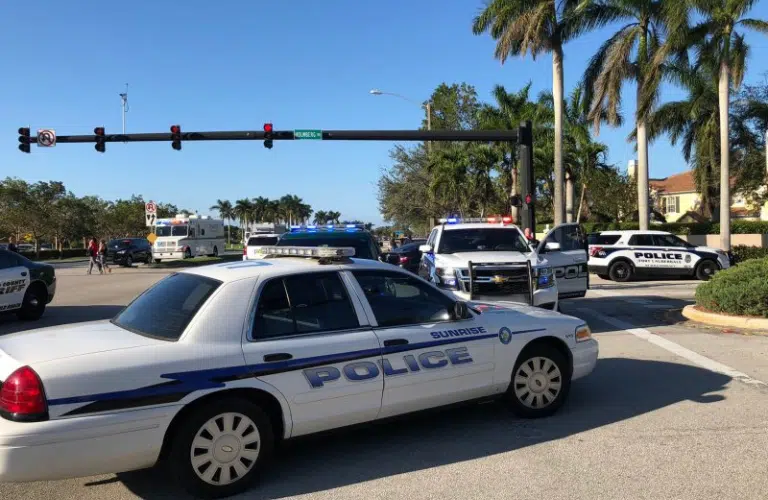
I think it’s important to inform people, I think it’s important to inform the students, to let them know what’s happening, and in the meantime to inform society at large and make sure that they know the facts. That’s worries me the most, that people don’t know the facts.
There seems to be growing partisanship in the U.S. on issues related to antisemitism and Israel in recent years. Is this something that worries you?
I’ve definitely witnessed this divide. Everything has become political divisive. I saw it after the shooting in Parkland. My daughters said, “This has to be a bipartisan issue,” and I told them, “Be ready to be disappointed.” And, sure enough, each party went on with their usual narrative. So when it comes to antisemitism, I think it’s absolutely essential that we remain bipartisan. At the same time, we also must take a stand, and expose people like Ilhan Omar, Rashida Tlaib, and Linda Sarsour, and even Bernie Sanders, and destroy the lies.
What are the most effective methods or initiatives you’ve seen in terms of making a real impact on the ground in the fight against antisemitism?
Face-to-face, individual conversations, that’s the most effective, but it takes a lot of time and energy. It’s a non-stop fight.
My parents were “hidden children,” and they were liberated by the Americans. There are so many people in this country who are ready to fight for freedom in general, and that is really refreshing and energizing, and that’s one of the aspects I love about this country.
What’s the main message you hope readers take away from the book?
I don’t know if I will change any minds, but to me, if you know something, and you don’t speak up, you’re an accomplice. And as Elie Wiesel said, neutrality always favors the tormentor, not the tormentee. So for me, I’ve seen what’s happened, and I have this legacy goal for my kids to explain why, but then when I see what’s going on, sometimes I feel like I died on the Titanic, and I’m reincarnated, back on the Titanic, and I’m telling people, “There’s an iceberg coming.” And they’re saying, “Eric, come on, enjoy the orchestra.”
So not speaking up is not in my nature. I think from the moment you’ve experienced something that you see a similar danger rising again, you need to speak up. If not, then you’re an accomplice. So for me, there are two main messages — the first one, please read what happened to us in Europe and learn from it. And the second message is, yes America is not a perfect country, there is no perfect country in the world, it still is the greatest country in the world, and Americans need to realize and appreciate this. I’m not naïve, but I have a lot of faith in this country, and I love living here and I hope for my kids to have all the opportunities here.
“Before It’s Too Late: A Love Letter to My Daughters and America” is available on Amazon here.


